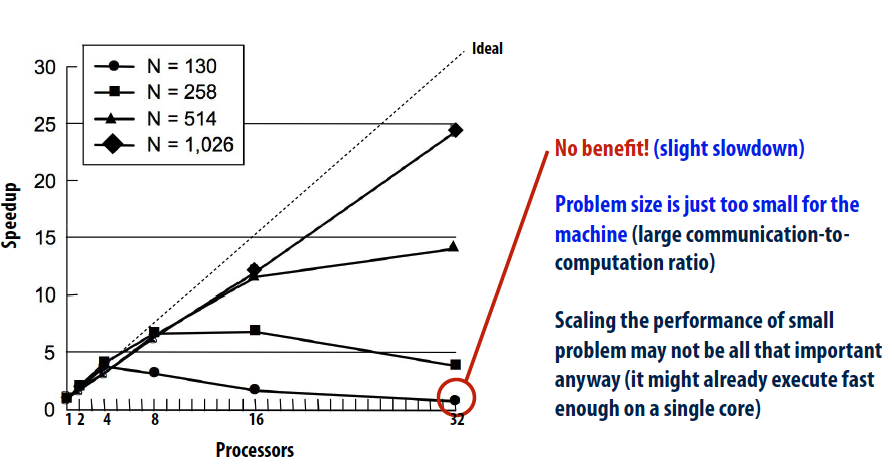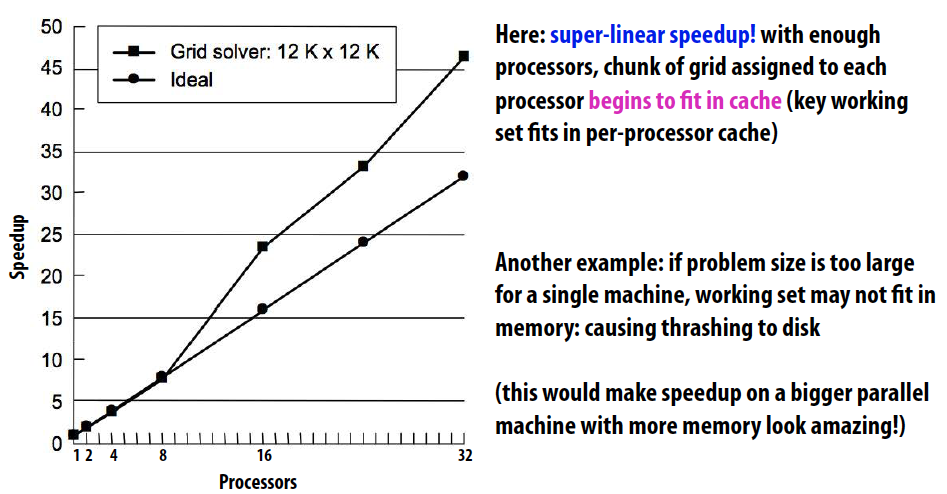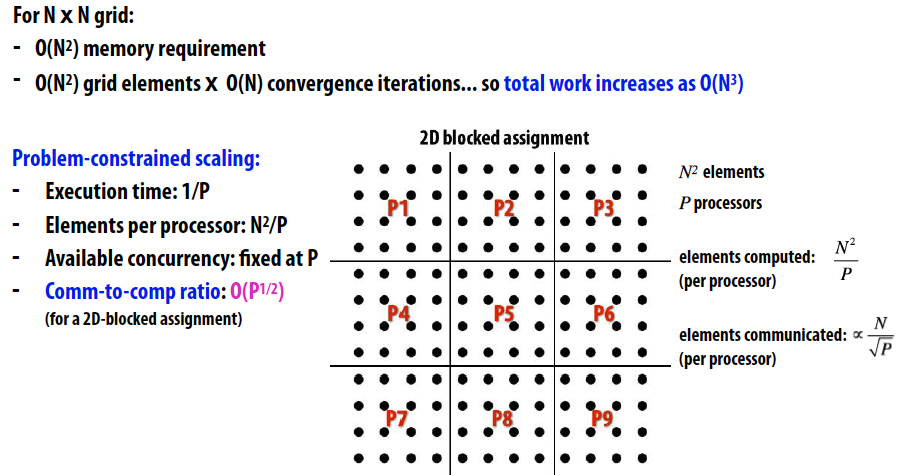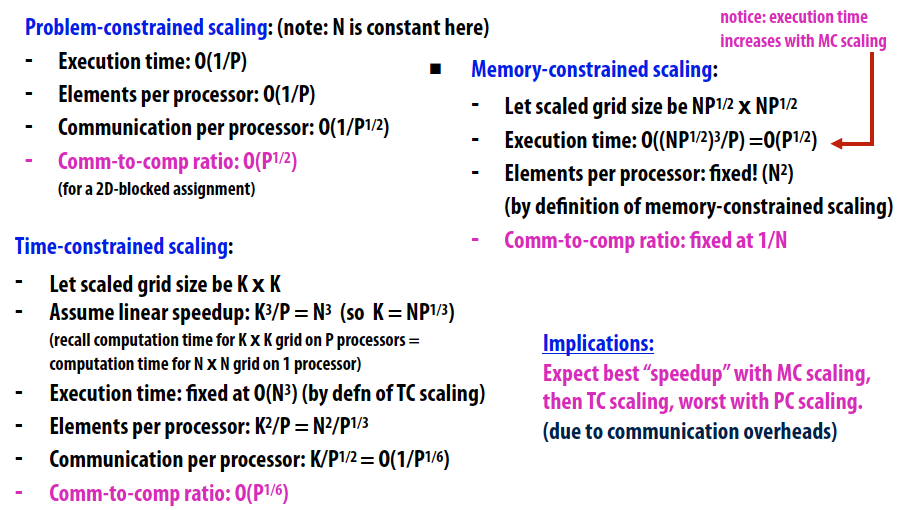Parallel Architecture & Programing 伍
工作使我自闭,丧丧丧。 甚至不知道到底是data烂,还是我烂。算了,就算我的吧,随便了。今天听说我研究生时期鼓励过我的学长回国了,可惜了了还没当面感谢呢~大家纷纷回国过年,快乐都是别人的我啥都没有🐶

Size for scaling
- There can be complex interactions between the size of the problem and the size of the parallel computer
- Can impact load balance, overhead, arithmetic intensity, locality of data access
- Effects can be dramatic and application dependent
- Can be desirable to scale problem size as machine sizes grow
比如这两个图:


- Too small a problem
- Parallelism overheads dominate parallelism benefits
- Problem size may be appropriate for small machines, but inappropriate for large ones
- Too large a problem
- Key working set may not “fit” in small machine
- When problem working set “fits” in a large machine but not small one, super-linear speedups can occur
Common Scaling Terminology
- Strong scaling
- Runtime of X on P processors, vs. of X on 1 processor
- Goal = P
- Weak scaling
- Runtime of (P*X) on P processors, vs. of X on 1 processor
- Goal = 1.0
Scaling constraints
Application-oriented scaling properties
- Particles per processor
- Transactions per processor
Resource-oriented scaling properties
- Problem constrained scaling
- Use a parallel computer to solve the same problem faster
- Speedup =
- Time constrained scaling
- Completing more work in a fixed amount of time
- Execution time kept fixed as the machine (and problem) scales
- Speedup =
- Memory constrained scaling
- Run the largest problem possible without overflowing main memory
- Memory per processor is held fixed
- Neither work nor execution time are held constant
- Speedup = =
还是那个2D grid solver的例子:


想起来考前复习算了好久这些,每个都算了orz 所以这个故事告诉我不论学的多差只要不放弃自己还是能过的(打A是不能打A了,PP我能打A,🐷都能上🌲
Challenges of scaling
- Preserve ratio of time spent in different program phases
- Preserve important behavioral characteristics
- Preserve contention and communication patterns
- Preserve scaling relationships between problem parameters

想回家过年。